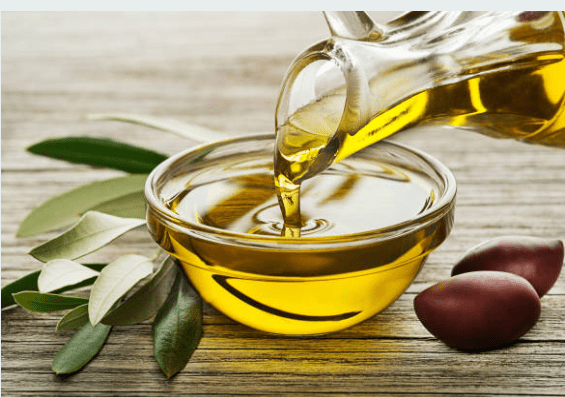In The Name of Allaah, The Most Merciful, The Bestower of Mercy.
Shaikhul Islaam Ibn Taymiyyah [rahimahullaah] said: The deeds of the People of Paradise: Imaan and Taqwa, and deeds of the people of hell fire: Disbelief, wicked deeds and disobedience to [Allaah and His Messenger].
Deeds of the people of Paradise:
Belief in Allaah; Belief in the Malaa’ikah; Belief in Books revealed by Allaah; Belief in Allaah’s Messengers; Belief in the Hereafter; Belief in Qadr (the good and bad of it); Belief in the Shahaadataan [None has the right to be worshipped except Allaah and Muhammad is the Messenger of Allaah]; Salaah; Zakat; Fasting during the month of Ramadhaan; Hajj; Ihsaan [to worship Allaah as if you see Him, even though you cannot see him, but you know that He certainly sees you]; Truthfulness in speech; Fulfilling trusts; Fulfilling agreements; kind treatment towards parents; Sincerity to Allaah; Maintaining the ties of kinship; kind treatment towards neighbours; Kind treatment towards orphans; Kind treatment towards poor people; Kind treatment towards slaves; Kind treatment towards animals; Reliance upon Allaah; Love of Allaah and His Messenger; Fear of Allaah; Hope in Allaah; Hope for Allaah’s Mercy; Turning to Allaah with repentance and obedience; Exercising patience with Allaah’s judgements; Thanking Allaah for His Blessings; Recitation of the Qur’an; Remembrance of Allaah; Supplicating to Allaah for one’s special needs; Reliance upon Allaah whilst fleeing away from what one fears; Enjoining good and forbidding evil; Striving in the path of Allaah against the disbelievers and the hypocrites; Keeping good relations with the one who cuts it off; Giving to the one who deprives you and Pardoning the one who oppresses you.
Indeed, Allaah has prepared Paradise for those who fear Him-those who spend in times of ease and adversity; those who suppress anger and pardon the people. Allaah loves the doers of good. And from the deeds of the people of Paradise is Justice in all affairs and towards all the creation, even the disbelievers. [1]
Shaikh Rabee Bin Haadi [hafidhahullaah] said: Allaah said:
وَعَدَ اللَّهُ الْمُؤْمِنِينَ وَالْمُؤْمِنَاتِ جَنَّاتٍ تَجْرِي مِنْ تَحْتِهَا الْأَنْهَارُ خَالِدِينَ فِيهَا وَمَسَاكِنَ طَيِّبَةً فِي جَنَّاتِ عَدْنٍ ۚ وَرِضْوَانٌ مِنَ اللَّهِ أَكْبَرُ ۚ ذَٰلِكَ هُوَ الْفَوْزُ الْعَظِيمُ
Allah has promised the believers – men and women, – Gardens under which rivers flow to dwell therein forever, and beautiful mansions in Gardens of ‘Adn (Eden Paradise). But the greatest bliss is the Good Pleasure of Allah. That is the supreme success. [2]
This promise is for them – the companions, the first and foremost. And you will rarely find a beautiful description or a promise of good like the one that I have mentioned, except that it will be attributed to the companions of the Messenger [sallal laahu alayhi wasallam] first and foremost after the prophets, and then the people that followed them.
Examine the statement of Allaah: [ وَرِضْوَانٌ مِنَ اللَّهِ أَكْبَرُ – But the greatest bliss is the Good Pleasure of Allah]- meaning, Allaah will enter them into Jannah, and will address them, saying, “O dwellers of paradise!” and they will say, “At thy service and pleasure, our Lord, the good is in Thy Hands”. He [Allaah- The Lord] will say, “Do you wish for anything more?” Then they will say, “What more could you give us, whilst you have already given us that which you have never given to any of the creation?” He [Allaah-The Lord] will say, “Yes, (and) I shall give to you something greater than that!” They will say, “And what is that?” He [Allaah] will say, “’I will bestow My pleasure and contentment upon you, such that I shall never be angry with you eternally thereafter”.[3]
So, the pleasure and contentment of Allaah is greater than Paradise itself, “Two gardens’, its utensils’ and all of its contents which are made of Gold, and Two other gardens’, its utensils’ and all of its contents which are made of silver, and there will be nothing preventing the people of the Garden of Eden from seeing the Face of their Lord, except for His Curtain of Majesty (veil) [4]
During their bliss, Allaah describes them (as being): [ فَلَا تَعْلَمُ نَفْسٌ مَا أُخْفِيَ لَهُمْ مِنْ قُرَّةِ أَعْيُنٍ جَزَاءً بِمَا كَانُوا يَعْمَلُون – And if We had willed, surely! We would have given every person his guidance, but the Word from Me took effect (about evil-doers), that I will fill Hell with jinn and mankind together.)] [5]
And Allaah mentioned many characteristics of this bliss, and from them is that which appears in this hadeeth, (Two gardens, its utensils, and all within it of Gold)… and from them is that which Allaah mentioned in his statement:
مَثَلُ الْجَنَّةِ الَّتِي وُعِدَ الْمُتَّقُونَ ۖ فِيهَا أَنْهَارٌ مِنْ مَاءٍ غَيْرِ آسِنٍ وَأَنْهَارٌ مِنْ لَبَنٍ لَمْ يَتَغَيَّرْ طَعْمُهُ وَأَنْهَارٌ مِنْ خَمْرٍ لَذَّةٍ لِلشَّارِبِينَ وَأَنْهَارٌ مِنْ عَسَلٍ مُصَفًّى ۖ وَلَهُمْ فِيهَا مِنْ كُلِّ الثَّمَرَاتِ وَمَغْفِرَةٌ مِنْ رَبِّهِمْ ۖ كَمَنْ هُوَ خَالِدٌ فِي النَّارِ وَسُقُوا مَاءً حَمِيمًا فَقَطَّعَ أَمْعَاءَهُم.
The description of Paradise which the Muttaqun (pious – see V.2:2) have been promised is that in it are rivers of water the taste and smell of which are not changed; rivers of milk of which the taste never changes; rivers of wine delicious to those who drink; and rivers of clarified honey (clear and pure) therein for them is every kind of fruit; and forgiveness from their Lord. (Are these) like those who shall dwell for ever in the Fire, and be given, to drink, boiling water, so that it cuts up their bowels? [6]
And from them is the mention of the Hoor Al-‘Ayn, and Allaah describes them many times, regarding their goodness and beauty, and giving one the urge [to perform good deeds]. All this bliss and happiness takes place before one receives the pleasure and contentment of Allaah, and this pleasure and contentment is greater than Paradise ,and it also takes place before the [believers] see Allaah, and there is nothing more beloved to them than to see their Lord. [7]
And due to their belief, truthfulness and sincerity, Allaah gives them this blessing. They strove, and for the one who strives there are a hundred levels, every level is between the heavens and the earth, and there is no one equal and better than them in that.
Therefore, it is obligated on us to know the status of the Companions of the Prophet, and that we are pleased with them, and that we call to their way, and we ask Allaah that he places us in their company and that of their prophet. Love for them is Eemaan and a part of one’s religion, and hatred of them is Kufr (disbelief) and Nifaaq (hypocrisy). And there are many Aayaat mentioned in the Qur’aan regarding the virtues of the companions. So, read the Qur’aan and understand it, and you will find many (verses) more than this, and do not dismiss any of them. [Source: An Excerpt from ‘Al-Wasaayaa Al-Manhajiyyah Li Muttabi’ee As-Sunnah An-Nabawiyyah pg.316-318. Slightly paraphrased]
[1] Source: Majmoo Al-Fataawaa 10/422; [2] Suratut-Tawbah – Verse 72; [3] Reported By Ahmad in his Musnad (3/88) Hadeeth no. 11857 and Bukhaari in Ar-Riqaaq no. 6549; [4] Surah As-Sajdah – Verse 17; [5] Reported by Ahmad in His Musnad (4/411), Bukhaaree in At-Tafseer (no.4878) and Muslim in Al-Eemaan (no.180),from the hadeeth of Abee Moosaa Al-Ash’aree (May Allaah be pleased with him); [6] Surah Muhammad – Verse 15; [7] Just as it appears in the Hadeeth in Musnad Ahmed (4/332 no. 19143, 19144) and Muslim in Al-Eemaan (no. 181) with the chain from Suhayb that the Messenger of Allaah ﷺ read this Aayah: [لِلَّذِينَ أَحْسَنُوا الْحُسْنَىٰ وَزِيَادَةٌ -For those who have done good is the best (reward, i.e. Paradise) and even more (i.e. having the honour of glancing at Allaah’s Face]. And then he said: When the people of paradise enter paradise, and the people of Hellfire enter Hellfire then the Caller will call out: “O inhabitants of paradise, indeed you have with your Lord a promise he wishes to fulfil,” so they will say: “What is that? Has He not already made our scales heavy, brightened our faces, entered us into paradise and saved us from the Hellfire?” He ( the narrator) said: “Then the Lord will lift the veil, and of that which has been given to them, nothing will be more dear to them and more beloved to their eyes than the sight of their Lord, The Mighty and Majestic. [7] Reported by Imaam Ahmed in Al-Musnad 2/335 (8402) and Bukhaaree in Al-Jihaad and As-Siyar (hadeeth no. 2790) from the Hadeeth of Abee Hurayrah (May Allaah be pleased with him), and Muslim in Al-Imaarah (Hadeeth no.1884) from the hadeeth of Abee Sa’eed Al-Khudree (May Allaah be pleased with him).






